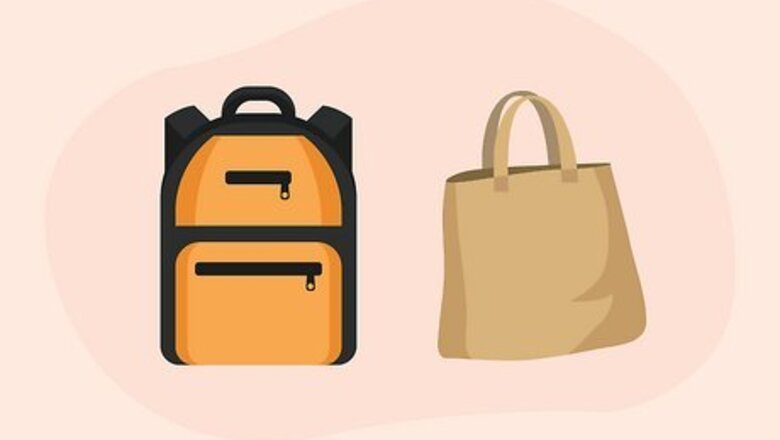
views
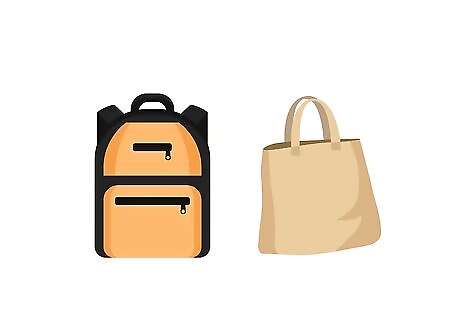
Buy a good book bag or tote. Don't get book bags that fall apart easily. Get a book bag that has enough zippers and compartments so that everything has a place, but not so many compartments that you're constantly looking for things. It's better to get a backpack if you will be carrying a lot of heavy books or binders, because the sling bags can ruin your shoulders. Recommendations for carry weight is 10% of your total weight.If your school allows it, it's a good idea to have a medium sized book bag or tote to carry around class to class also, though some schools don't allow any bags, many will say no backpacks but totes or book bags are fine. This really helps as you will not have to carry around a huge load of books, as most will fit in your bag.
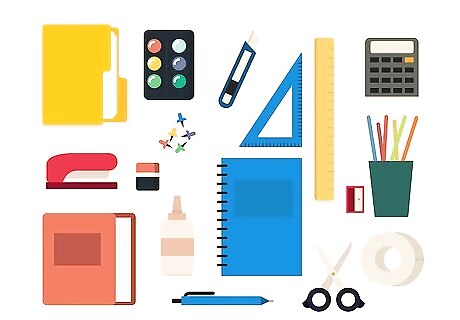
Purchase supplies. A key to having everything organized in middle school is having all the supplies you need, nice and clean and organized. Some schools give you the supplies you'll need, but you can generally buy supplies cheap at stationery stores, especially at the Back-To-School times. Here are some purchases you should make: Check each teacher's supply list to make sure you have everything you need. Have your parents or guardians get everything on the lists so you're not the last student to have supplies. At the very least, you should have notebook paper, pencils, and folders for each class. Remember, you will be changing classes and taking your things with you to your next class so there is no need to purchase multiple packs of things like colored pencils or highlighters. Buy, make, or reuse a pencil case. In the pencil case put things in like pencils, pens, erasers, sticky notes, etc. Keep your planner with you. With your planner, your whole homework schedule and after school activities can be organized. Write things in it like homework, events, meetings, etc.
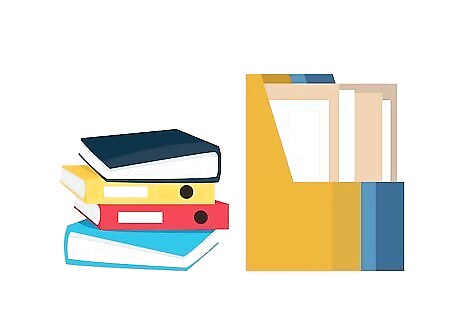
Make sure everything has a place and stays in it! Math papers don't belong in your English notebook or your pocket. Be consistent. Keep papers in their corresponding notebook at all times. It will make things so much easier. You won't have to be worried on the way home about which binder something is in (and you forgot one of your binders). Many schools or teachers will require you to have a binder for their class and even schedule "notebook checks" where they make sure that you have all your papers in the right places in your binder.
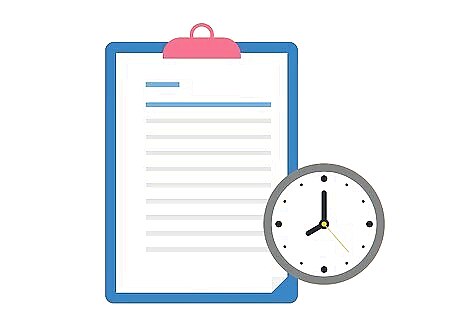
Try setting up a schedule in the morning that will help you with staying organized. A sample schedule might be: Wake up and shower at 6:00, get dressed at 6:20, eat breakfast at 6:45, do your hair and makeup at 7:00, and leave at 7:15. It also helps to pack everything you can the night before, like putting all your homework and books in your bag, so all you have to add is your lunch. With the schedule, make sure you allow extra time in case something goes wrong (ex: you wake up late and don't have time to do something).When you have LOADS of homework: Take a sheet of paper, and write down all the subjects you have, then write the time you think you will need for each subject. Then try to put that time for homework in your weekly schedule. With the right schedule, you will become the responsible person that you should be!
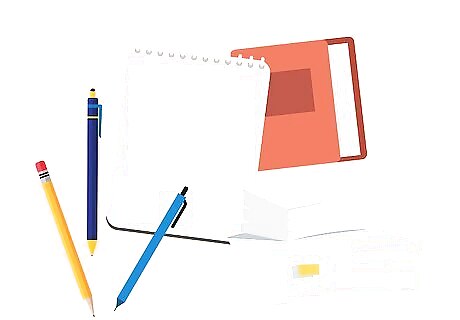
Always have backup supplies! You want to have backup supplies just in case you lose any of it, or you forget it somewhere. Make sure to have a couple of extra packs of paper and pens/pencils in your locker.
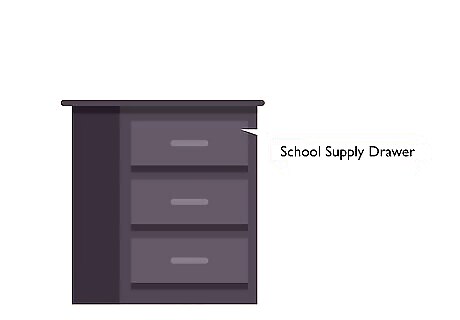
At home, set up a drawer or area in your room for extra school supplies. This really helps as you know where everything you're not using is. It is also a good idea if you plan to buy bulk packs of things, which is very cheap, but can be hard to keep track of. If you have a "School Supply Drawer", you will always have a place to put extras, and know where those things are when you eventually need them.
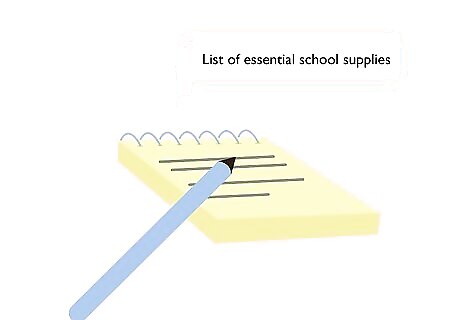
Only buy the types of supplies you need. If you are in 8th grade, you probably won't need to buy lots of glue sticks and crayons, while a 5th grader won't need a graphing calculator. If you only buy what's on your supply list, and anything else you KNOW that you will use, you'll have a lot less junk to keep track of.
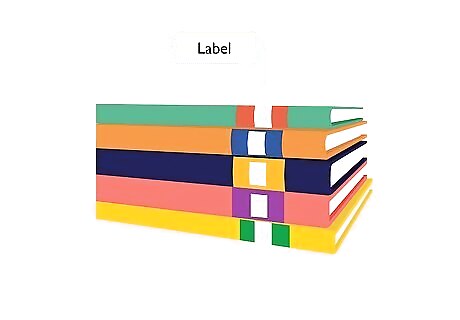
Label everything, and label it correctly, so you know where everything is. Labeling your notebooks and folders makes them easier to find. If you can make the folder and notebook for a class the same color, that helps too.
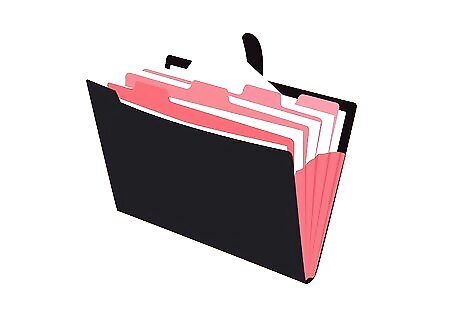
If you like to draw or make up stories in your free time or while waiting for the bus, keep an "extra folder" for all your papers.
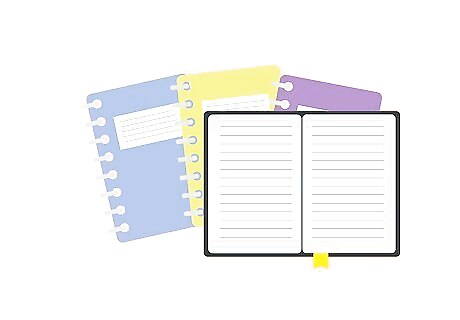
If you have teachers that often give you big assignments, keep a spot in your notebook for keeping up with all the info and supplies for that project so it won't be mixed in with daily work.
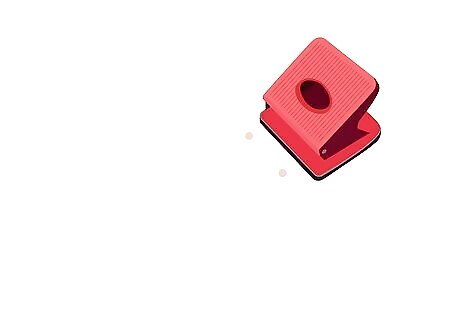
Keep hole punch that goes in your binder so any papers your teacher hands you, you can put them in your binder (if you keep a binder).
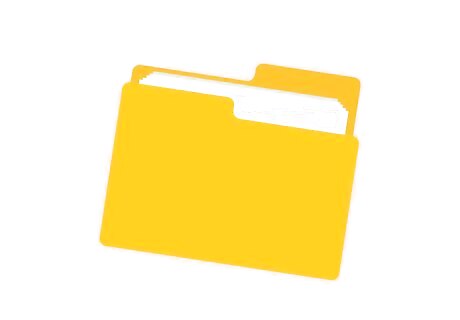
Do not shove all papers into your backpack; this will make a mess and you will not be able to find anything you need! All of your papers will also get crumpled and ripped, and you don't want to hand them in like that!

Make sure to pay attention. If you do not pay attention and one of your teachers calls on you, how will you know the right answer? You could use your study guide if you have one and know where it is.
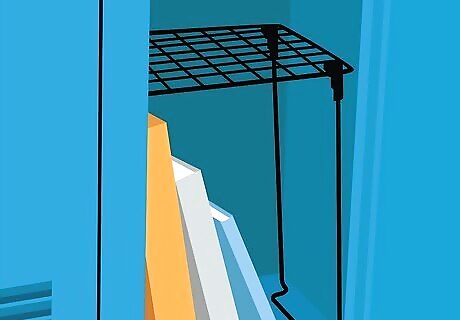
If your school has lockers, consider buying a locker organizer. Otherwise, do your best to divide it into several sections. Example: One for textbooks, one for notebooks, one for binders, and another for a backpack. Keep a magnetic pencil holder and a whiteboard on your locker door. The magnetic pencil holder is for spare pens, pencils, highlighters, erasers, and supplies. The whiteboard is where you will write your assignments, classes, and memos on.
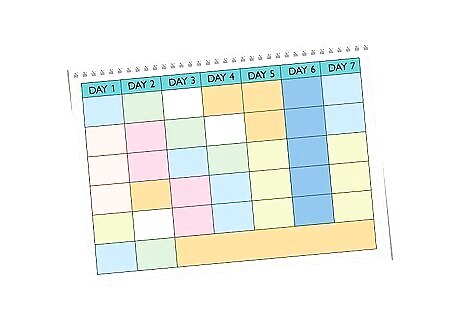
Make color-coded study schedules so that you get to review everything you need to.



















Comments
0 comment